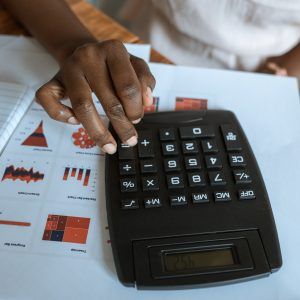[bctt tweet="Because most people have developed a natural disdain for education and don’t like to learn, financial illiteracy ends up propagating the cycle of poverty." username="QaziniKenya"]
Financial education is defined as having full knowledge of how the modern financial system works. Unfortunately, many people in Kenya today don’t have the basic skills to manage their personal finances. A recent World Bank survey puts the number at roughly 62%, which means that only 38% of the population understands basic financial principles.
Even more seriously, there is a direct correlation between a person’s level of financial education and their financial situation. Forbes writer Nancy L. Anderson argues that it is impossible to lift yourself out of poverty if you don’t have a proper understanding of personal financial management.
An abundance of financial myths and misconceptions
Unfortunately for millions of young adults, the formal education system in Kenya offers nothing in the way of financial education. As such, there is little opportunity for learning unless you find other routes. Because poor people are more likely to be surrounded by other poor people, their beliefs about money tend to lean more towards misconceptions and wealth myths.
As a good example, the extent of the financial education I received from my father was; wealth is the leftovers of the stomach. Given over roast meat and ugali on the day of my first journey to Nairobi, this lesson stuck. A few years later, my mother gave me the most important rule of all; always save … and use that money to buy nice stuff.
Relatives and family friends contribute to a young man’s financial education too. The most repeated piece of advice: take in a good woman – she will help you save and accumulate wealth.
All things considered, these might be good pieces of advice. But alone, they leave one’s financial education incomplete, which makes one susceptible to making serious mistakes in personal financial management.
Financial anxiety
Studies have shown that financial education can also be used to eliminate financial anxiety. It is evident that people who are financially illiterate experience more financial anxiety than those who understand the financial system and plan their finances. Financial anxiety is a consistent companion of anyone who is not financially secure, even though most have found ways of coping and avoidance.
I will go a step further and suggest that financial education is a requirement to make wealth. A person who does not understand money is poor even when they have money because they will probably misuse and/or waste it all. How many jackpot winners, athletes, and celebrities do we know that have squandered massive fortunes?
In the never-ending pursuit for a better way of life, a good foundation in the form of financial education makes all the difference. It allows you to take charge of your financial destiny and avoid making potentially costly mistakes down the line.
Wasted 0pportunities
Besides constant financial anxiety, financially illiterate people are unable to take advantage when an opportunity comes their way. I have listened to one too many stories of 30-something-year-olds bemoaning the “good old 20-something years” when they had a lush job and lived THE life. Behind the half-wistful, half-bragging voices, you can hear their regrets because they didn’t plan or save when the times were green.
Fear is another prominent emotion of those who lack financial education. People who don’t understand money fear money as the cause of all evils. They also fear the rich as mean, selfish, and powerful. Perhaps as a result of living in poor environments, many see obstacles instead of seeing money-making opportunities.
Financial education, or lack thereof, does not make people do this. It is what accompanies financial illiteracy – money wastage and poverty – that does all this. And because most people have developed a natural disdain for education and don’t like to learn, financial illiteracy ends up propagating the cycle of poverty.
Many people are one emergency away from bankruptcy
In the absence of money management skills, the financially illiterate are generally more exposed to unforeseen circumstances. Emergency expenditure disrupts a precarious balance of incomes and expenditure and often throws the whole system in disarray.
Financial education helps prepare you for potentially disruptive medical emergencies, whether through a savings plan or by investing in a medical insurance cover. With all the attention on infection rates and lockdown measures, we have completely missed the devastating impact of the covid-19 pandemic on families around the country.
However, everyone knows someone who has lost their job or closed down their business, and as a result, been rendered financially insecure. And we can’t help feeling that, with proper planning, some of these adversities might have been avoided.
Also read: Trapped in Mobile Loan Debt? Here’s How to Get Out
A call to action
Financial education is absolutely critical for personal wellbeing in the world today. Every individual has the duty to familiarize themselves with money and the financial system.
Financial education empowers you to spend your money better, to keep you protected when adverse events happen. The mistakes that you make for lack of financial education hurt you the most.
As the caretakers of our money in the modern financial system, banks have a responsibility to their clients to teach them about money. Moreover, as their business is literally to handle money, they are better positioned to offer education on its management.
Finally, the government has a role to play in financial education as well. First off, financial literacy is a prerequisite to fostering a stronger economy based on individual financial empowerment. Secondly, the government stands to benefit the most from the collective financial empowerment of her citizens.
Also read: Why Providing Financial Literacy to Your Employees Is Important and Some Ideas to Get You Started





